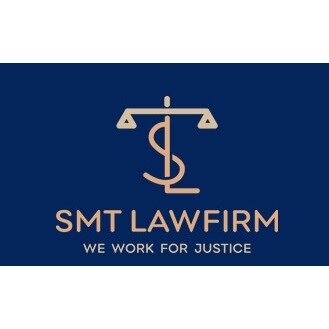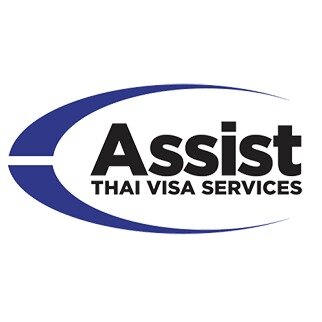Best Commercial Real Estate Lawyers in Chiang Mai
Share your needs with us, get contacted by law firms.
Free. Takes 2 min.
Free Guide to Hiring a Real Estate Lawyer
List of the best lawyers in Chiang Mai, Thailand
Legal guides written by SIAM LEGAL INTERNATIONAL:
- Defamation Laws in Thailand: Criminal Charges and Civil Suits
- The State of Thailand’s Long-Term Resident (LTR) Visa Program in 2025
- The Penalties Of Not Filing Your Income Tax Return As A Foreigner In Thailand
Thailand Commercial Real Estate Legal Articles
Browse our 7 legal articles about Commercial Real Estate in Thailand written by expert lawyers.
- 5 Common Legal Pitfalls in Thai Real Estate and How to Avoid Them
- Nestled within the paradisiacal landscapes and burgeoning economic dynamism of Thailand lies a high-stakes real estate market rife with both rapturous potential and formidable legal complexities. This idyllic Southeast Asian terrain has emerged as a globally-coveted destination for luxury residential developments, commercial property investments, and ambitious real estate endeavors spanning... Read more →
- How Foreigners Can Own Property in Thailand
- For foreigners considering property ownership in Thailand, understanding the process and relevant laws is crucial. These laws are not typically compared to the property ownership laws of other countries, as the Kingdom strictly regulates which foreigners can own property, the circumstances under which they can do so, and the types... Read more →
- Tax Implications of Buying Property in Thailand: A Comprehensive Guide
- You might be an expat in Thailand hunting for your next property investment, and interested in buying a condo in one of the world’s fastest-moving cities, Bangkok; or perhaps you’re an investor who is also in awe of the stunning and ever-popular vacation island of Phuket, or a retiree considering... Read more →
About Commercial Real Estate Law in Chiang Mai, Thailand
Chiang Mai, a thriving hub in Northern Thailand, offers a unique commercial real estate landscape marked by rapid development and increasing foreign investment. The legal framework governing commercial real estate in Chiang Mai is designed to facilitate both domestic and international business while retaining sustainable growth and cultural preservation. This framework includes regulations governing property ownership, leases, financing, and developments. As the city continues its push towards modernization, understanding these legal parameters is crucial for successful investment and development ventures.
Why You May Need a Lawyer
In the realm of commercial real estate, legal challenges are commonplace, particularly in a vibrant market such as Chiang Mai. You might require legal assistance in situations like property acquisition, negotiating lease agreements, navigating zoning laws, or resolving disputes. A lawyer can provide invaluable guidance in understanding Thai property laws, conducting due diligence, reviewing contracts, and ensuring compliance with local regulations. Their expertise ensures that your transactions are legally secure and aligned with your business objectives.
Local Laws Overview
Chiang Mai, like the rest of Thailand, operates under a set of laws that govern real estate transactions. Foreign individuals and entities face specific restrictions on property ownership and may need to pursue leasing opportunities or joint ventures with local businesses. The Condominium Act allows foreigners to own up to 49% of the units in a condominium building, offering a viable entry point into real estate ownership. Additionally, the Land Code, Building Control Act, and Environmental laws provide guidelines for land use, development, and environmental conservation. Understanding these legal frameworks is essential for successful navigation of the commercial real estate market in Chiang Mai.
Frequently Asked Questions
Can foreigners own land in Chiang Mai?
No, foreigners are not permitted to own land in Thailand. However, they can lease land for up to 30 years, with an optional renewal, or own up to 49% of a condominium unit.
What are the common types of commercial properties available?
Commercial properties in Chiang Mai range from office spaces, and retail centers to hospitality establishments like hotels and restaurants. Industrial properties like warehouses are also available.
How can a foreigner legally invest in commercial real estate?
Foreign investors often engage in joint ventures with Thai nationals or invest through Thai registered companies. They may also consider purchasing leasehold properties, particularly for long-term investment strategies.
What are the typical costs involved in purchasing commercial property?
Costs include transfer fees, legal fees, taxes, and sometimes a specific business tax based on property value or transaction type. Consulting a local lawyer can help clarify these expenses.
Do I need a permit to renovate a commercial property?
Yes, most renovations require a building permit from the local authorities, ensuring the changes comply with safety and structural standards.
What should I know about leasing commercial property?
Lease agreements should be carefully reviewed, focusing on terms like rent, duration, renewal options, and maintenance responsibilities. Legal advice is beneficial to understand and negotiate these terms.
Are there environmental regulations affecting commercial property development?
Yes, Chiang Mai has environmental regulations to ensure sustainable development. Developers must assess potential impacts and often require permission from local environmental boards.
What is the process for conducting due diligence?
Due diligence involves verifying property ownership, ensuring compliance with zoning laws, evaluating current leases, and confirming that there are no encumbrances on the property.
How can a lawyer help with property disputes?
A lawyer can provide representation in negotiations or court proceedings, help resolve breaches of contract, or address issues related to zoning or property boundaries.
What are the key legal documents involved in commercial real estate transactions?
These typically include the sale and purchase agreement, title deed, lease agreement, and due diligence reports. Legal assistance ensures these documents are comprehensive and enforceable.
Additional Resources
In seeking legal guidance or conducting research, several resources can be tremendously helpful. The Thai Real Estate Information Center offers insights into market trends. The Chiang Mai Chamber of Commerce and the Board of Investment of Thailand provide support and collaboration opportunities. For regulatory information, the Ministry of Interior and Thai Land Department websites are essential sources.
Next Steps
If you require legal assistance in commercial real estate in Chiang Mai, it is recommended to consult a local lawyer with expertise in Thai property law. Begin by identifying your needs, whether it's property acquisition, leasing, or dispute resolution. A qualified lawyer will offer clarity, facilitate negotiations, and ensure compliance with local legislation. Conduct initial consultations to discuss your objectives and evaluate the lawyer's familiarity with commercial real estate in Chiang Mai. This proactive approach will enhance your strategic positioning in the real estate landscape.
Lawzana helps you find the best lawyers and law firms in Chiang Mai through a curated and pre-screened list of qualified legal professionals. Our platform offers rankings and detailed profiles of attorneys and law firms, allowing you to compare based on practice areas, including Commercial Real Estate, experience, and client feedback.
Each profile includes a description of the firm's areas of practice, client reviews, team members and partners, year of establishment, spoken languages, office locations, contact information, social media presence, and any published articles or resources. Most firms on our platform speak English and are experienced in both local and international legal matters.
Get a quote from top-rated law firms in Chiang Mai, Thailand — quickly, securely, and without unnecessary hassle.
Disclaimer:
The information provided on this page is for general informational purposes only and does not constitute legal advice. While we strive to ensure the accuracy and relevance of the content, legal information may change over time, and interpretations of the law can vary. You should always consult with a qualified legal professional for advice specific to your situation.
We disclaim all liability for actions taken or not taken based on the content of this page. If you believe any information is incorrect or outdated, please contact us, and we will review and update it where appropriate.






![Legal & Business Consultancy in Chiang Mai [LBC CHIANGMAI]](https://lawzana.com/storage/firms/2674/16209701614886.jpg)










